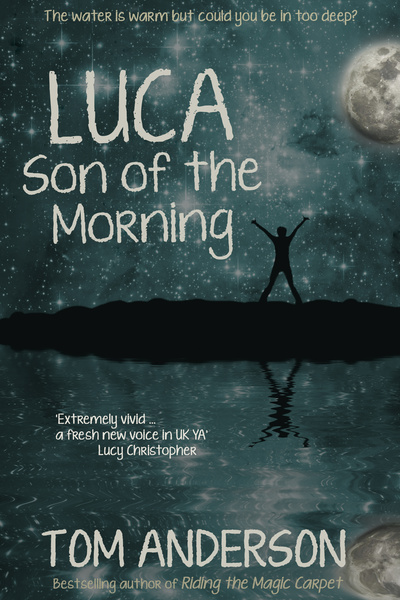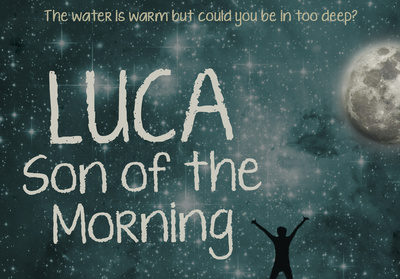The protagonist of this book is a teenage boy named Luca who tells us in the opening paragraph that he sees ghosts. It also becomes clear that he is undergoing some kind of therapy in a “place with pillows and disinfectant”.
Luca has very strange dreams and listens to a lot of reggae music which, we are told, provides a sound track to the narrative – or would at least if this was French cinema and the music of Radiohead. For anyone (like me) unfamiliar with the names of the songs referred to in the text, this aspect of the story gets lost.
 The book is in two parts. Part 1 introduces the characters and sets up a series of unlikely encounters which may or may not be illusory. In Part 2 the pace picks up a little, although the adventures seem to become increasingly outlandish (a swim from Wales to Cartagena … before getting spirited off to a fishmarket in Tokyo?) before culminating in strange happenings at a teen party.
The book is in two parts. Part 1 introduces the characters and sets up a series of unlikely encounters which may or may not be illusory. In Part 2 the pace picks up a little, although the adventures seem to become increasingly outlandish (a swim from Wales to Cartagena … before getting spirited off to a fishmarket in Tokyo?) before culminating in strange happenings at a teen party.
What can I say about Luca? He is potentially a very interesting character and seems to have wise thoughts. When he explains to the reader about a particular group in his school that he was : “…waiting to exist in their eyes while you wished you didn’t have to exist in your own…” we can empathise. But however wise Luca’s character might be, he is let down – and patronised – by the teen jargon that the author puts into his mouth.
There are times when the dialogue feels strained to breaking point. For a writer teen jargon is a difficult area – unless you are a part of the demographic and/or know exactly what you’re doing. Notable children’s writers like J.K. Rowling and Philip Pullman steered well clear. The risk of getting it wrong is too high. Even if it is not wrong it still interrupts the flow of the narrative. For example as Luca takes leave of his friend Gaby he says: “Yeah, okay. Nice one. T’ra.” Does anyone say ‘turrah’ any more? It reminded me of Cilla Black decades ago.
Luca has a difficult relationship with his parents (we are told) but it is hard to believe on the strength of the evidence; the narrator needed to be more persuasive. At one stage the protagonist disparages his mother to the reader for ‘not bothering’ to find out about his sleeplessness and his ‘seeing’ things but then says in the same breath ‘I didn’t want to have to tell her…’ So what was the poor woman supposed to do? Have more insight perhaps? We all need that.
Teenage protagonists of novels are often separated from their families by reason of unfortunate circumstances, or they are locked into difficult home lives in order for there to be a story arc. In this book, the reader is told that Luca falls into the second category, but the evidence isn’t really there.
Apart from one (scarcely credible) episode when the father behaves recklessly as regards his own life and his son’s, the heinous parental behaviour seems to consist mostly of watching TV and taking alcoholic beverages. Admittedly these are not traits we like to see in our children, so we should not want to see them in adults. Unfortunately though we often do.
Accent Press, 300pp, £7.99











